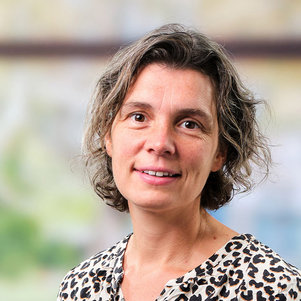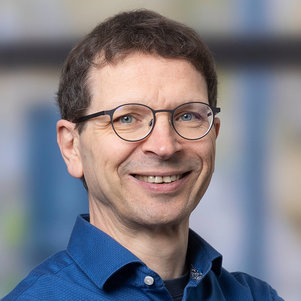MSc CoSEM
In the CoSEM Master's programme you explore the innovations in complex socio-technical environments. You learn to think about more than technology alone. After all, when designing technological innovations, you have to deal with matters such as existing regulations, subsidies, distribution channels and infrastructures, as well as interests, cultures and human behaviour. In order to achieve successful innovations, these aspects must be considered and used in your socio-technical design. These kinds of designs always have an ethical dimension and an international character. The programme therefore spends a great deal on ethical issues and has an international character.
Every year the curriculum is revised. Under this tab you will find the curriculum of the past few years.
The MSc programme offers three tracks, each specializing in a different aspect of complex systems:
-
The Energy track offers comprehensive education in the field of energy markets and future energy systems. It focuses on renewable energy, electricity and gas infrastructures and markets, and how possible interventions for their improvement can be designed. These interventions may consist of investment in physical components (or even entirely new infrastructures), changes to the operation and changes to the regulation of the system.
The track is intended for students who are interested in management, policy, consultancy and/or entrepreneurial endeavours within the field of energy markets and future energy systems. Recent developments as smart grids, industrial micro-grids, plug-in (hybrid) electric vehicles, renewable heating systems, the gas roundabout, shale gas and other sources of ‘new gas’ are examples of topics elaborated in the programme.
THESIS PROJECT
Master’s thesis projects might, for example, involve consulting on policy analysis for government or industry or working as a corporate strategy analyst, or be related to the activities of plant managers, quality managers and/or consultants involved in operations and tactics in the process industry, or to industrial policymaking. Typical organisations and companies where graduates take up employment are Shell, ECN, Kema, Ecofys, Electrabel, Nuon, Essent, TenneT, Siemens, Philips, GE Plastics, Boskalis, Port of Rotterdam, Cap Gemini, Ernst & Young, the Netherlands Ministry of Economic Affairs and the Netherlands Ministry of Housing, Spatial Planning and Environment.
-
Nowadays, nothing in our society can function without a large-scale digital information infrastructure. The information infrastructure is a technically complex system because it is constructed by components that are publicly or privately owned. This requires a design and governance of the systems that are based on public-private partnerships to make optimal use of the information.
The I&C track offers comprehensive education in the field of system architecture and design of I&C based platforms for multi-actor collaboration, business intelligence, safety and security. The track is designed for students who are interested in designing, for example, application for smart logistics, in designing platforms for local energy generation or for big and open data to create green energy services within a smart city.
THESIS PROJECT
Recent graduation projects focused on such issues as the formulation of a global IT sourcing strategy, improving innovation processes, the design of a quick-scan information awareness tool, the development of new mobile services (e.g. for police officers), the design of processes that are enabled by smart meters, the design of information sharing among private and public organisations, the exploitation of social software/Web 2.0 applications to promote new ways of working in banking, and the design of a patient portal for communicating with doctors at a medical centre. Typical organisations and companies where graduates take up employment are ING, insurance companies, KPMG, Accenture, customs and revenue organisations, social security, municipalities and ministries. Several graduates have successfully launched their own companies.
-
The transport and logistics sector is constantly in development and requires innovative engineers. In this track students analyse and design urban mobility, freight and logistics systems taking into account the travel behaviour, the conflicting interests and competing political, social and economic demands. They learn about transport and infrastructure systems from an integrated transport, environmental, economic and spatial perspective.
They work on questions as: “what is the impact of land use policies on mobility patterns?”, “what possibilities do new data sources from e.g. GPS and cell-phone triangulation provide for studying travel behaviour?”, and “what is the impact to ICT on the valuation of travel time?”. They develop alternatives for designing new or improved transport and infrastructure systems and gain insight into problems related to the design and control of transport processes from a multi-actor perspective.
THESIS PROJECT
Thesis projects relate to the analysis and design of transport systems at all levels and for all purposes: the economic, spatial and legal environment of transport systems, issues associated with environmental and safety concerns, challenges regarding accessibility, etc. Thesis projects include the analysis and design of either internal logistics processes or inter-organisational processes. Important themes are the optimisation of procurement, inventory, transport, sales and customer service related processes. Other projects examine the impact on logistics of new technologies and policies, such as the possibilities in city distribution, or greening supply chains or container terminal processes. The focus can be quantitative (e.g. operation research or simulation based) and/or qualitative (analysing and generating management decisions).

